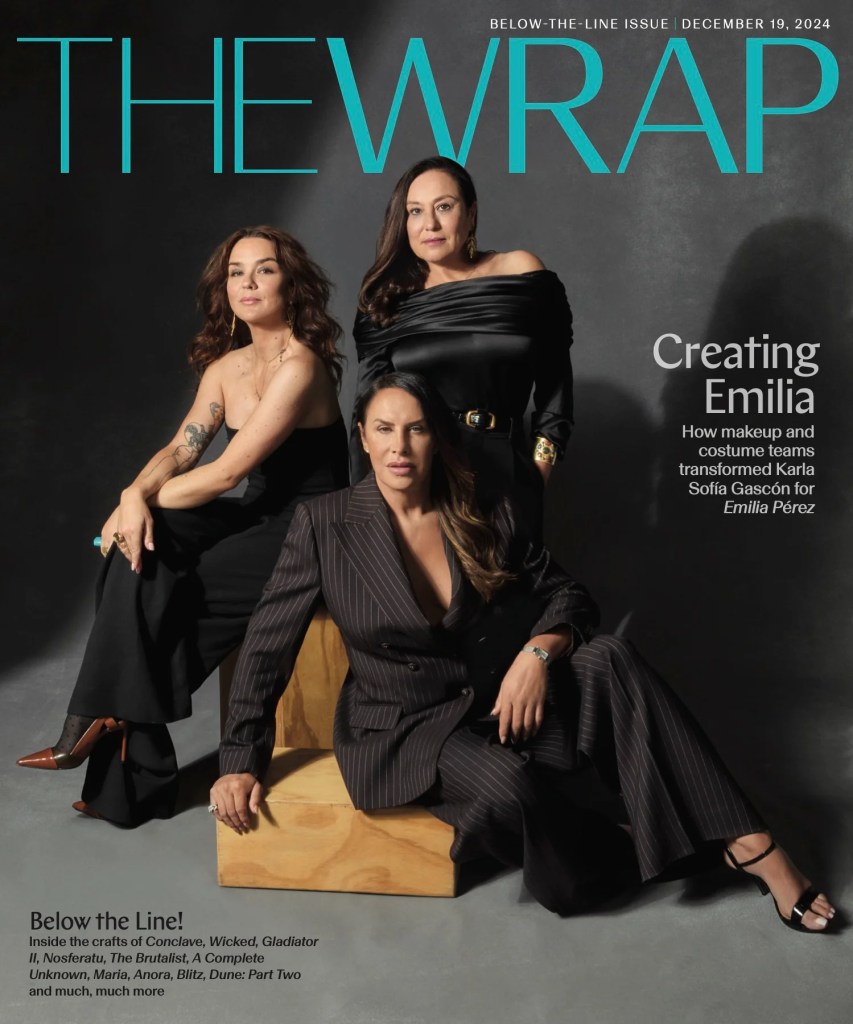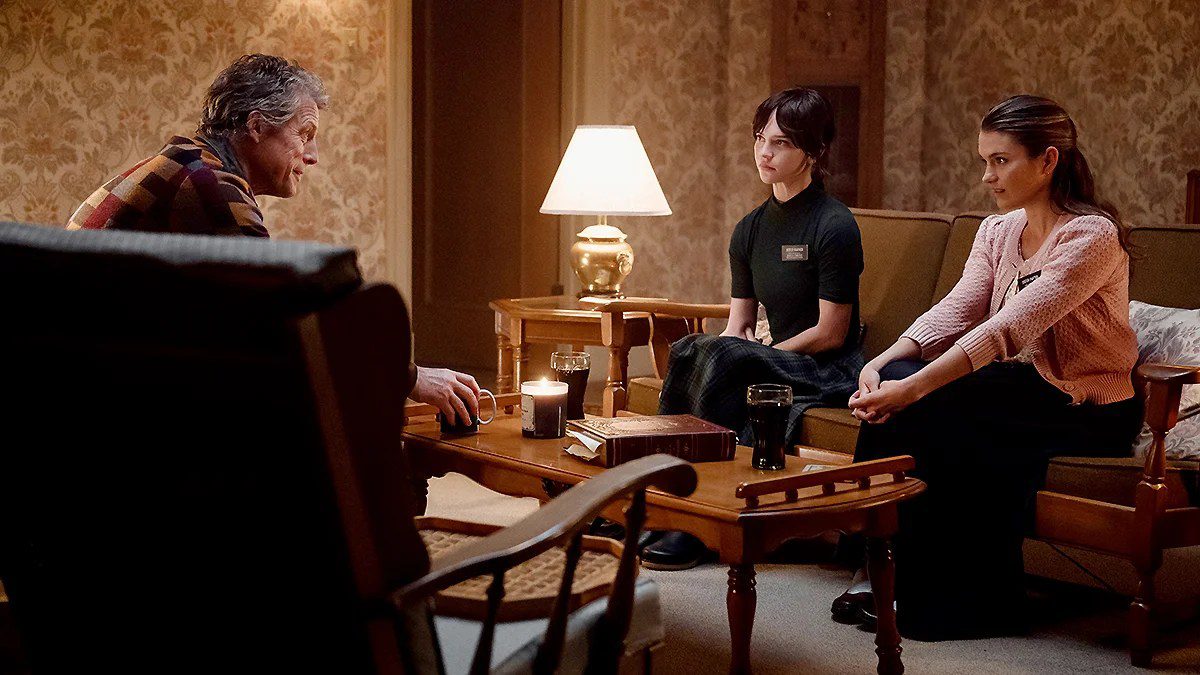The living room, an interior designer once said, is the temple of the soul.
That thought takes on a whole new meaning during the taut 20 opening minutes of “Heretic,” which is set entirely within the front sitting room of the grinning Englishman Mr. Reed (Hugh Grant), whose name, if pronounced with a slight garble, sounds like the word “mystery.”
On a rainy afternoon, Mr. Reed hosts two Mormon missionaries (Sophie Thatcher and Chloe East) for some pie and proselytizing. But this is an A24 horror movie, directed by “A Quiet Place” writers Scott Beck and Bryan Woods, and the uncool
lounge area is replete with minutiae about what lies beyond — and beneath — the couch and coffee table.
“The living room scene was an area where we could really get into the psychological aspects of what was happening,” production designer Philip Messina (“The Hunger Games”) said. “There were a lot of discussions about how the room would represent Mr. Reed’s idea of what would put people at ease. There are little figurines on the shelves. There’s a needlepoint on the wall that says ‘Bless This Mess.’ And in the room there’s also a little wicker basket filled with knitting — but Scott and Bryan took out the knitting needles. The needles could be used as a weapon, so they had to go.”
Nearby, we also see a framed photo on a side table: A snapshot of Grant in his floppy-haired 1990s glory, with Nico, his German Shepherd.
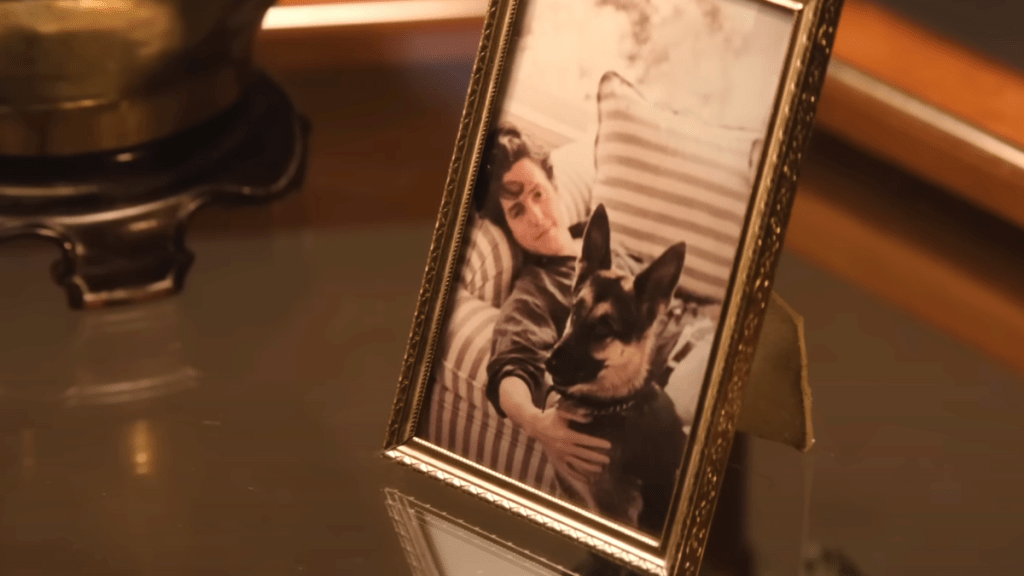


Messina’s team built the room on a soundstage in Vancouver. For him, the most crucial design element was the wallpaper, a sickly yellow floral pattern that covers the entire room. Dozens of samples were printed for camera tests. “It needed to look like something that, in another time and place, might have been desirable,” Messina said. “We wanted just the right amount of awfulness to it.”
Although the idea ultimately didn’t make it on camera, Messina prepared a corner of the room where some of the wallpaper was peeling off, revealing another pattern underneath. “We talked a lot about the notion of iterations, which is a big topic explored in the story,” he said.
More than half of the sequence consists of close-ups of the three actors, so the
background wallpaper appears slightly out of focus in the camera lens of
cinematographer Chung-hoon Chung (“Oldboy,” “Wonka”). Viewed from a distance, the swirling latticework of lines could be interpreted as a big spider’s web — and up close, the pattern has an undeniable Rorschach zing.
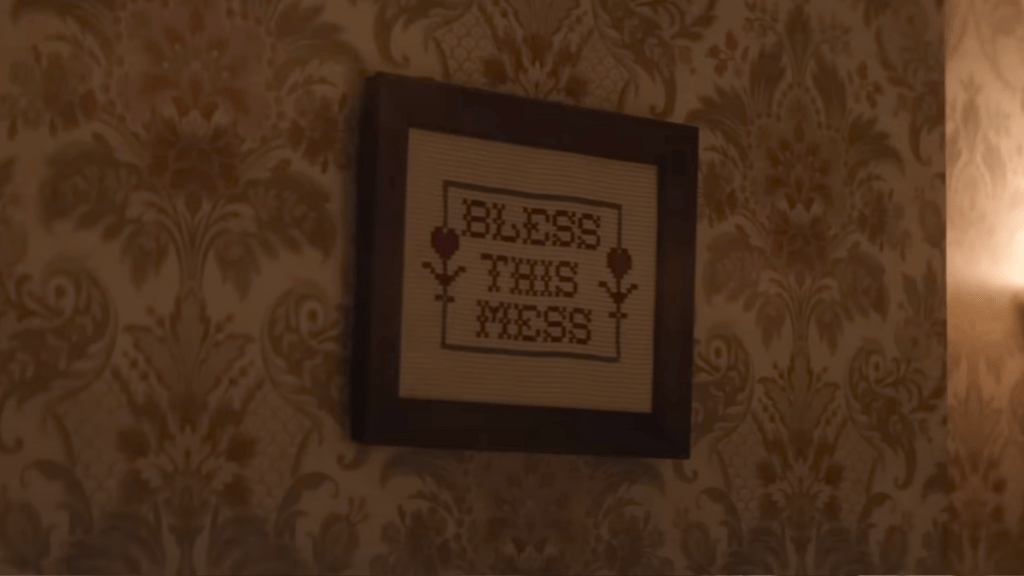


The filmmakers even toyed with the idea of embedding secret images within the wallpaper but decided against it. Shadows on the wall, however, suggest at one point a dark cloud behind Mr. Reed’s head, and later a light sconce over his shoulder is shown, in relief, as devil horns.
During the scene, the two young missionaries sit on a midcentury-modern couch
(nabbed by the film’s set decorator Hamish Purdy at a flea market right before filming began) across from Mr. Reed in a Danish-style armchair. “It felt like something a professor would have in his living room,” Messina said. “And next to him there’s an empty chair as well, which we called ‘the wife’s chair.’”
The furniture feng shui was carefully rationalized and rearranged during the rehearsal process. Behind the women is a little octagonal window that glows with an aquarium blue. “From where the couch is positioned,” Messina said, “the girls can crane their necks and see down that long dark hallway that leads out of the living room. But the window, the freedom of outside, is not visible to them.”
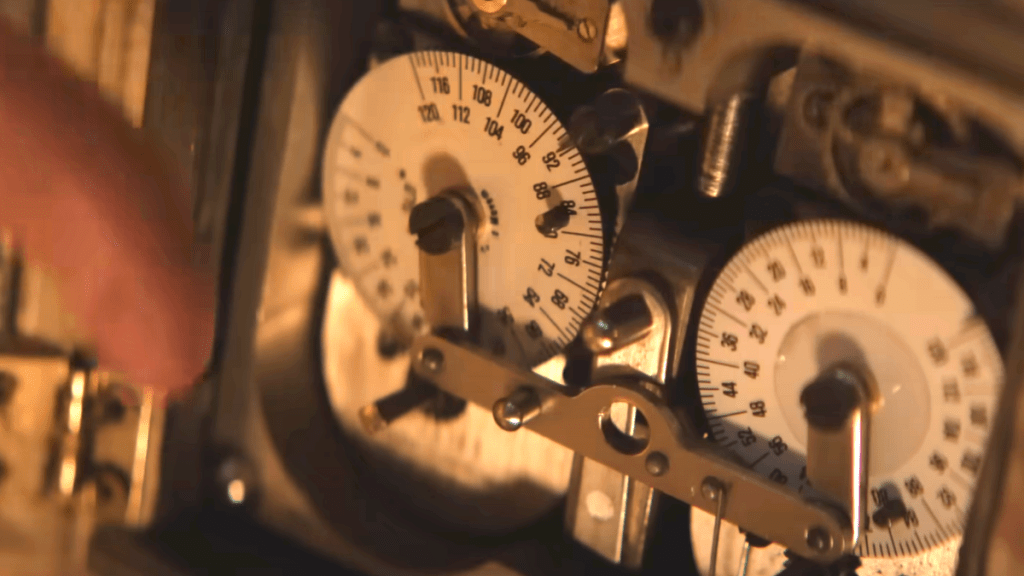


And on the topic of things unseen, the script originally stated that Mr. Reed had access to a hidden switch to lock and unlock the front door. But Messina (who designed Steven Soderbergh’s heist-heavy “Ocean’s” trilogy) and his team came across something more diabolical than a switch: It was a complex bank vault device, a Swiss-watch-like jumble of hairsprings, click screws and hinges, which was built behind a light-switch cover next to the front door.
“It fits right in with the analog nature of the whole story,” he said. “It’s so intricate. Hugh really loved it. That’s one of those moments where we were able to enhance an idea in a way that really gave the fear factor a bit of a leap.”
A version of this story first appeared in the Below-the-Line Issue of TheWrap’s awards magazine. Read more from the issue here.
